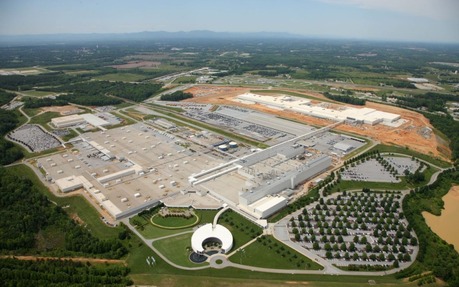An Automaker’s Impact on a Community
I’m not big on politics, but my general understanding of the Trump Administration’s view on foreign carmakers is completely whack. Its desire to impose tariffs and stiffer rules on imported cars, to protect domestic carmakers, seems like it will do little to no good, if not the exact opposite.
The way things are at the moment may not be perfect, but if the POTUS was to take some time to visit foreign brand plants in his country, he’d see the immense positive impact companies like Kia, Hyundai, Honda, Toyota, Volkswagen, Nissan and BMW have had in the areas where they’ve built assembly plants.
- Also: 2019 BMW X7: The Final Piece of the SUV Puzzle
- Also: 2018 BMW X3: Improved in all the Right Places
I had a brief discussion with a BMW representative while at the X7 drive event and he was present back in 1994 when the German automaker opened their new plant. He recalls staying at the only acceptable hotel in the city at the time and seeing countless boarded-up buildings and homes. Over the last 25 years, the Greer, Greenville and Spartanburg cities of Spartanburg County, South Carolina, have grown and developed into bustling areas. If the downside is loads of traffic and construction, the upsides are nearly countless, including jobs. Lots and lots of jobs.
The plant’s capacity is of 450,000 units annually and it is responsible for global production for the X3, X4, X5, X6, and X7 crossovers. Roughly 70% of all the vehicles produced at the plant are exported to 140 countries across the Globe which makes BMW’s exports some of the most valuable in the industry.
This kind of volume has created the need for 40 suppliers located in South Carolina—and 235 suppliers across the U.S.—which are directly responsible for the creation of 20,000 jobs. All in all, BMW’s presence in the county and state employs approximately 30,000 people. Beyond that, BMW provides sponsorships, educational support and much, much more to the local communities. And keep in mind these numbers do not include all the people employed by BMW’s network of dealerships, those that work at the company’s American headquarters in Woodcliff Lake, New Jersey or the equivalent in both Canada and Mexico.
I understand that this data is nothing in comparison to Ford, GM or FCA numbers, but if you combine all of the aforementioned “import” car brands, the tides shift.
To tamper with this could be catastrophic. Extra tariffs, fees, taxes, penalties, whatever they may be, could lead to a number of unfortunate results. Price increase on the imported products could mean drops in sales followed by job losses for both plants and suppliers. And although domestic brands might gain in the process, I suspect that the time gap between the decline and recovery in the industry as a whole would take far too long, hurting everyone.
Again, I think the car companies are doing far more good than harm. Perhaps it’s time to look for another industry to use as a scapegoat to explain the state of the economy.
